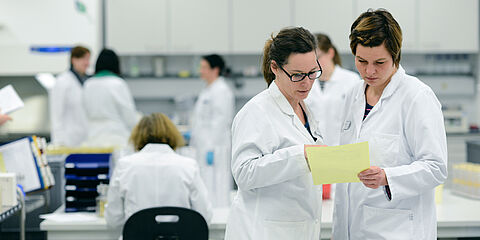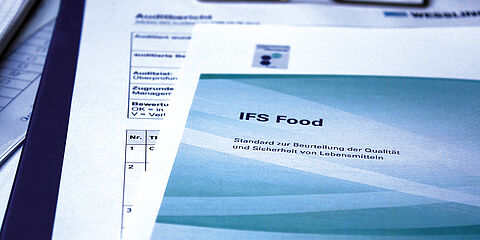Baked goods, cereal and pasta products
Our services for you
WESSLING offers you all of your required services from a single source: from advice in advance, sample collection and laboratory testing to interpretation of the findings, including recommendations for action. Our experienced experts are authorised to examine official counter-samples according to Section 43 of the German Food Ordinance.
- Sensory tests
- Nutritional analysis, labelling tests and expert opinions, e.g., on marketability
- Molecular biological tests, such as those for allergens
- Testing for genetic modification
- Analysis for residues and contaminants, such as acrylamide, 3-MCPD esters, mycotoxins or heavy metals
- Pesticide analysis
- Microbiological tests, for example, for spoilage agents, indicator organisms, pathogenic microorganisms - culturally or alternatively by means of a rapid procedure.
- Finishing baking of semi-finished products and raw dough pieces in our in-house professional baking station
- Testing of packaging materials
Your contact person
- Christina Witt
- +49 2505 89-633
- food@wessling.de

„Our food experts offer customised analytical and consulting services to producers of baked goods and cereal products and to the trade. I look forward to advising you according to your needs.“
Expert information for you to download
Grains - an important staple food for all of us

The consumption of bread covers large parts of the daily requirement for carbohydrates, protein and B vitamins in industrialised countries. The most important cereals are wheat, rye, rice, maize, barley, millet and oats. Pseudo-cereals, which are used as cereals but are not botanically classified as cereals, include buckwheat, amaranth and quinoa.

Grain mill products
As the degree of fineness increases, a distinction is made between meal, semolina, haze and flour. In addition, as fineness increases, more shell components enter the flour, making it darker and richer in vitamins and minerals.

Baked goods
These include bread, biscuits and fine baked goods. Baked goods with a low water content are called long-life baked goods.

Pasta products
They are made from wheat flour products, with and without the addition of egg, in numerous forms. Durum wheat is preferred for production because its higher gluten content (protein content) results in better processing properties and favourable sensory characteristics, such as texture and bite.

Cereals
Cereal flakes, muesli, cornflakes and similar products are available in numerous varieties. They are usually eaten with milk, yoghurt or fruit juices.

Starch
Starch is obtained from cereals or other starch-containing raw materials, such as potatoes, manioc or tapioca. It is used as native or modified starch in numerous applications.




